Surveillance, fear: The perils of reporting in Myanmar’s Rakhine
Myanmar is restricting media access to the far western state of Rakhine where the military is fighting Arakan Army rebels.
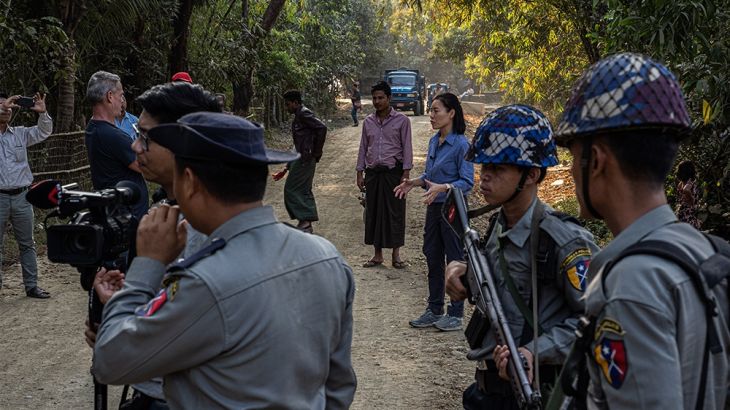
Rakhine, Myanmar – “I think I might have told you too much already. Someone will probably tell the government I’ve been speaking to journalists,” the shopkeeper told me.
We were in Maungdaw, a once-bustling town in the northern part of Rakhine state, Myanmar.
Keep reading
list of 4 itemsConflict, climate, corruption drive Southeast Asia people trafficking: UN
Bodies of three Rohingya found as Indonesia ends rescue for capsized boat
How is renewed violence in Myanmar affecting the Rohingya?
We looked around.
There wasn’t anyone who stood out as secret police.
After all, it’s usually not difficult to pick them out. They are normally better dressed than villagers. A close-cropped haircut means they are most likely to be military intelligence. Sometimes there’s a tell-tale sign- a walkie talkie.
But the shopkeeper was still worried. He wouldn’t tell us his name or give us his phone number.
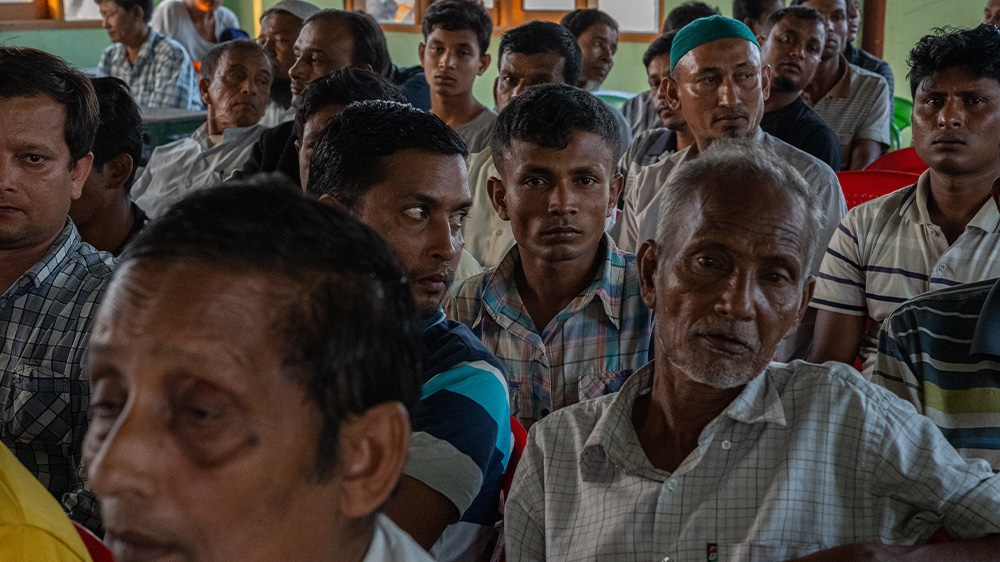
We were on a government-arranged media trip to northern Rakhine. This was where the Myanmar military had launched a brutal crackdown on 25 August 2017, targetting the mainly Muslim Rohingya, an ethnic minority in Myanmar.
Soldiers and Buddhist mobs were accused of killing, torturing and raping Rohingya men and women. Homes were ransacked and set ablaze. The fires raged for days and could be seen from across the border in Bangladesh.
International medical charity, Doctors Without Borders (Medecins Sans Frontieres, or MSF) estimates at least 6,700 Rohingya were killed in the first month alone.
‘Genocidal intent’
Nearly three-quarters of a million Rohingya fled to Bangladesh and remain there, languishing in camps. A UN fact-finding mission concluded in a report in September 2018 that the Myanmar government had “genocidal intent” against the Rohingya.
The Myanmar government has denied the accusations and defended the military operation as a legitimate response to attacks by Rohingya fighters from a small armed group, known as the Arakan Rohingya Salvation Army.
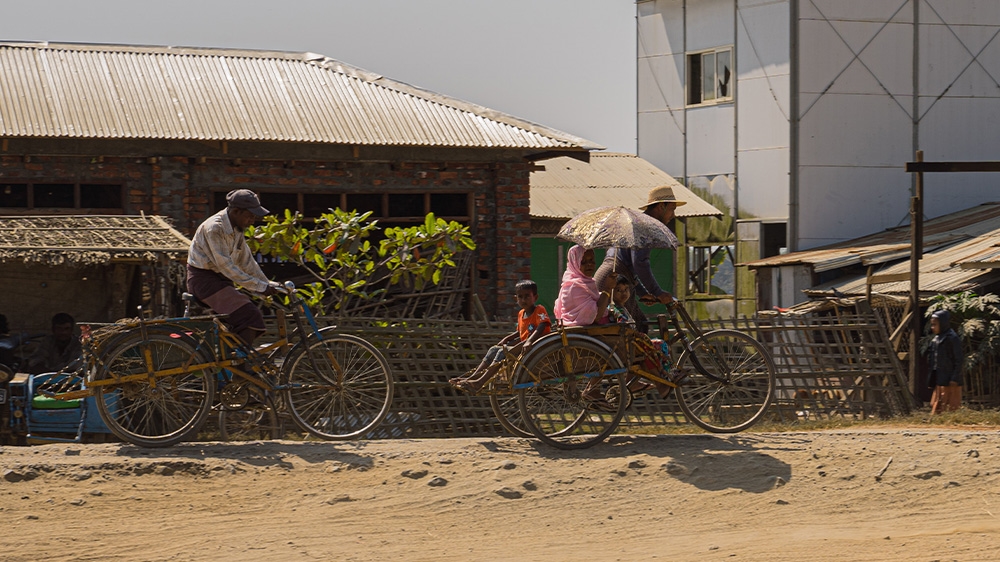
Since then, access to the area has been heavily restricted. Pre-arranged visits, accompanied by government minders are the only way foreign journalists can report from Northern Rakhine.
Our itinerary was fixed by the Ministry of Information.
We visited three Rohingya villages and were given between 30 to 45 minutes in each respectively.
In every village, Rohingya were gathered in a classroom for journalists to interview. And every time someone spoke, a government minder would film them or stand close by to eavesdrop.
We thought we would get people to speak to us more candidly if we could break away from the group and wander deeper into the village. But armed police insisted they would walk with us. For our safety, they said.
The other option was to hand out our mobile numbers to people.
Afraid to speak out
One man reached out.
We had spoken to him at one of the villages but we’re not naming him or the village to protect his identity.
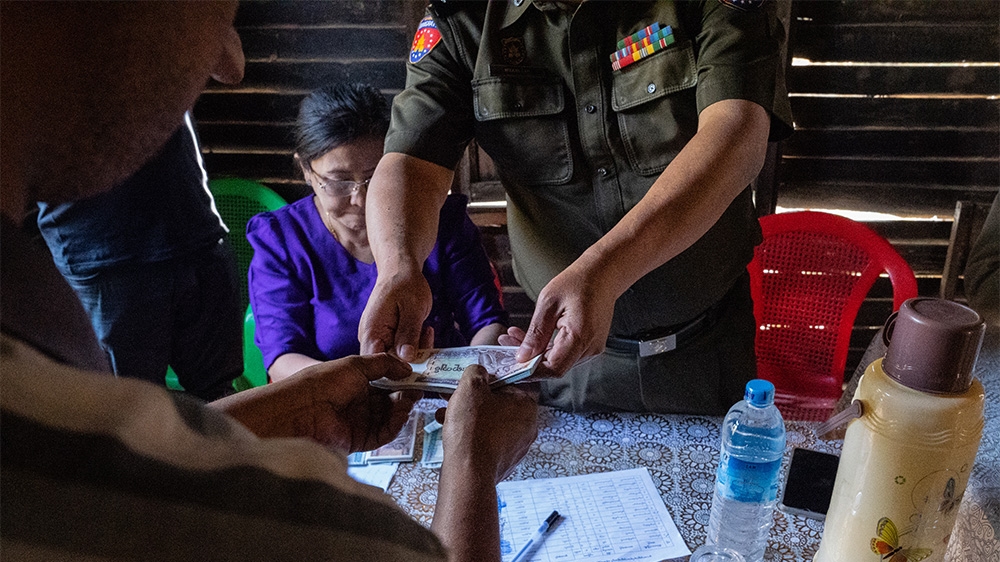
When we met him, he had told us he wasn’t worried that violence could flare up again. But now, over the phone, he was telling us he had lied because he was afraid.
He said: “Police used to arrest people who spoke to journalists or (the police) asked them for bribes.”
“The special branch police questioned me after I spoke to you. He asked me my name and what I told you.”
On the day we left Rakhine state, another Rohingya called us on the phone.
He spoke of the desperation he felt, of how their rights were being stripped.
He said he was being pressured to accept the national verification card and made to say that no violence happened in his village in 2017.
He wouldn’t say which village he was from and we have no way of verifying his story.
But it’s true the Rohingya are being coerced into accepting national verification cards.
Battle for citizenship
The Myanmar government says the cards are the first step towards citizenship, but critics argue the documents effectively identify them as foreigners. And few Rohingya are willing to accept them.
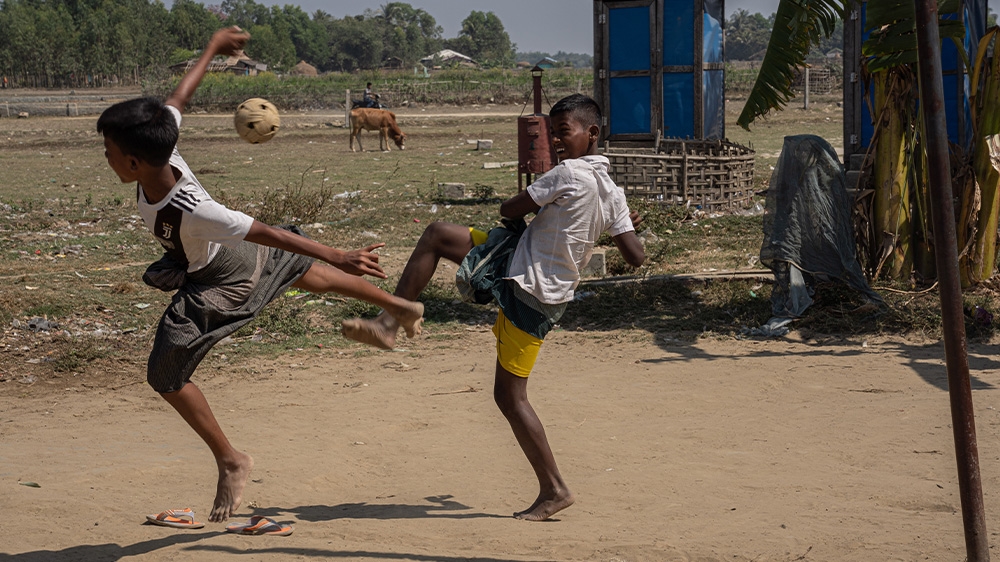
Kyaw Min, a Rohingya politician in Yangon, explained to us:
“(The) Rohingya understand the ulterior motive of the Myanmar government. They’re forcibly degrading their citizenship status.”
The Rohingya have lived in Myanmar for generations, but the government does not recognise them as an ethnic group and considers them as migrants from neighbouring Bangladesh.
They are subject to government restrictions on travel, education, employment, even family planning.
The Myanmar government’s narrative is that all is well in Rakhine. At one village, we were made to witness government cash being handed out to Rohingya families to help them rebuild their homes destroyed in the 2017 crackdown.
Officials told us they’re ready to receive Rohingya who want to return.
They’ve built shiny new reception centres near the border.
“We even plan to open kindergartens”, said Soe Aung, the Maungdaw district administrator.
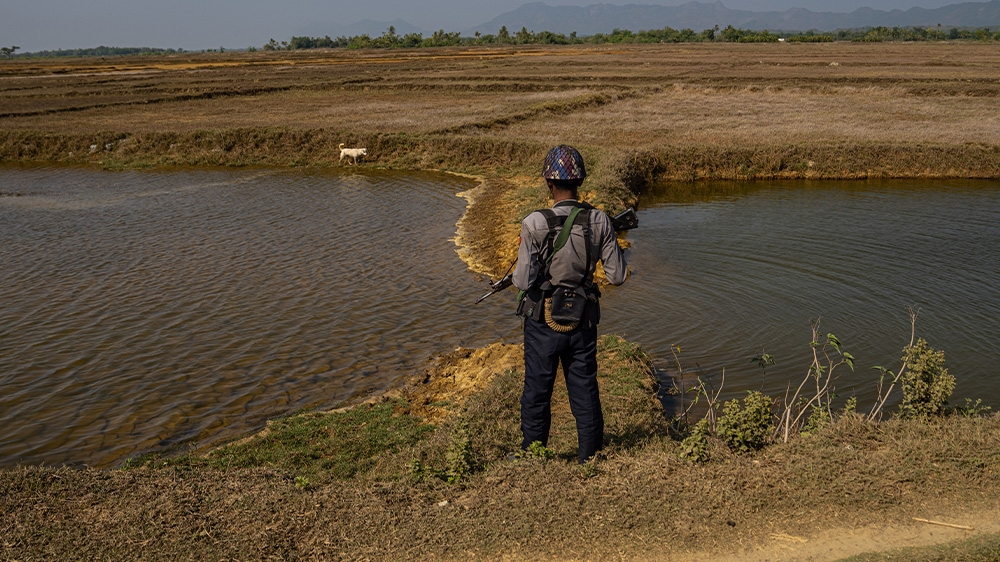
But two repatriation attempts, in January 2018 and August 2019 have so far failed because no one wanted to come back.
‘We can’t say anything’
The UN refugee agency chief Filippo Grandi recently said conditions are still not conducive for Rohingya refugees to return.
A Rohingya youth in Maungdaw told us those in Bangladesh may even be better off.
“Physical conditions may be worse in the camps in Bangladesh. But at least they are freer there – they can speak up,” he said. “Here, we can’t say anything.”
Few think the situation in Myanmar will change anytime soon.
Khin Zaw Win, founder and director of think-tank Tampadipa Institute, blames the civilian government and military leaders for fanning racial and religious sentiments.
“This kind of populist wave to get electoral support, it’s a very disgraceful thing,” he said.
“We probably might have to wait until the elections are over, number one. I’m feeling that you might have to wait for another generation of leadership.”